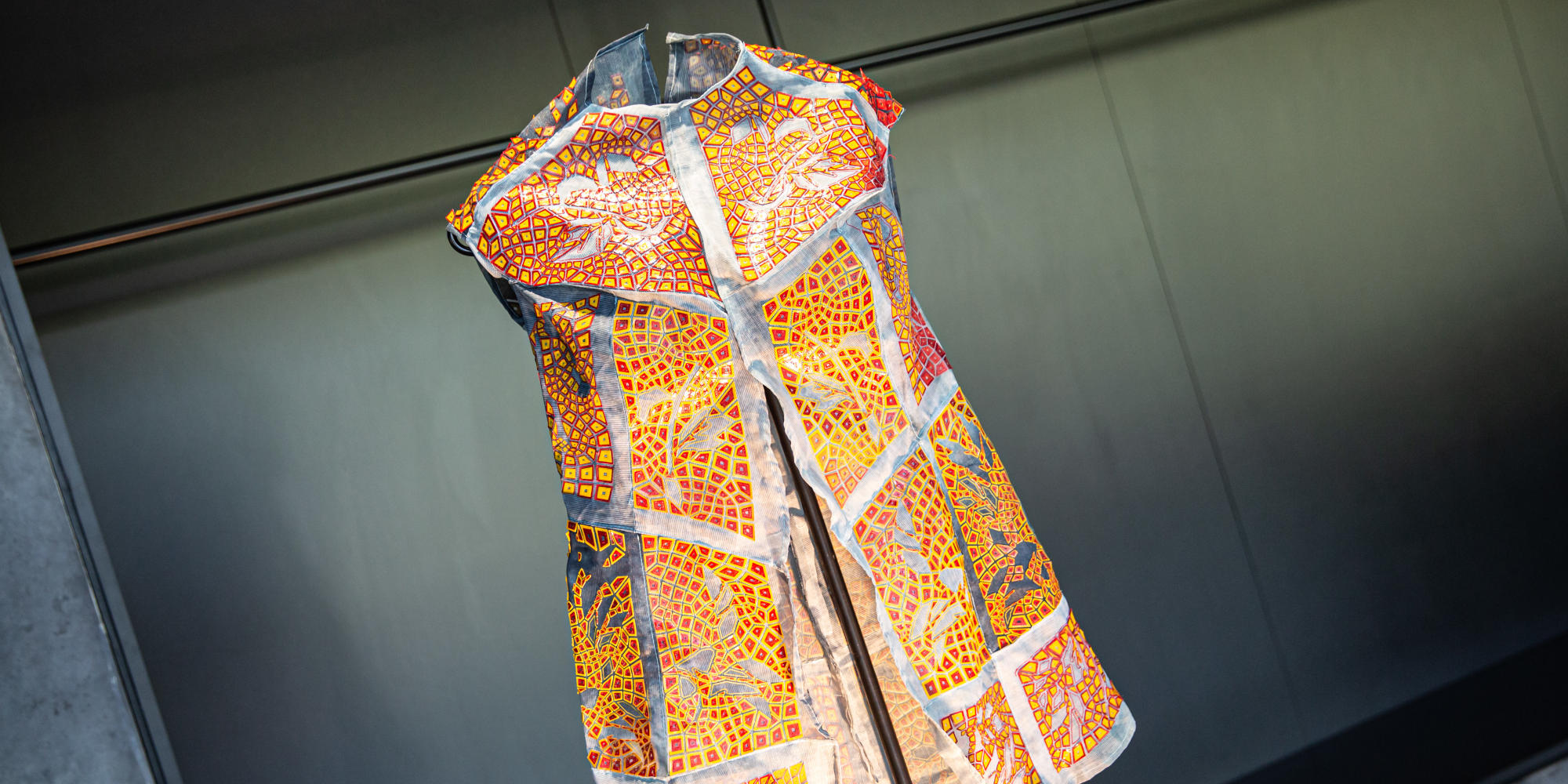The Re-Textiles 3D project aims to develop a new production system for the fashion industry based on a specific body scan using the latest depth-camera technology. The project investigates digital measurement systems that can determine the exact sizes of specific people without any human touch. The project uses recycled filament made from 100% water bottle waste in a FDM 3D printing process, which transforms production towards a circular economy and sustainable systems.
Re-Textiles 3D
I believe the way to solve the enormous problem of textile waste is by shifting systems from mass production to customized garment-production methods. The process I am working on consists of the initial 3D body scans for getting digital measurements for one of a kind garments, fit to measure for a specific consumer. Secondly, the process consists of 3D software design using parametric software (grasshopper) for building a unique pattern based on the curves of the body scan. The systems work on the same code, but apply it on the body scan to create a 2D pattern from the data of the 3D scan. Finally, the 3D pattern generates a 3D printed model, printed with FILAMENTIVE 100% recycled filament made from recycled water bottles, and also printed directly on 100% natural fabric for a unique, sustainable system of garment production.
Project Credits / Acknowledgements
Ganit Goldstein. Horizon 2020 Art & Tech collaboration, re-think fashion – Re-Fream grant.
Technological companies: Haratech, Stratasys, Profactor, Fashion & Technology department University of Art and Design Linz
Biography
Ganit Goldstein is a designer whose interest lies in the intersection between craft and technology for innovative products, predominantly working to incorporate 3D Printing and scanning into 3D textiles. Her projects have received great attention and immediate press recognition, presented at exhibition and museums around the world including Milano Design Week, New York Textile Month, Munich Jewelry Week and more. Ganit believes in an interdisciplinary approach to design: mixing tradition and futuristic techniques, emphasizing the relationship between craft, technology, science, and arts through pioneering research collaborations. Ganit has passion and high motivation for finding innovative design approaches and new solutions to invent better, efficient-smart textile systems.


